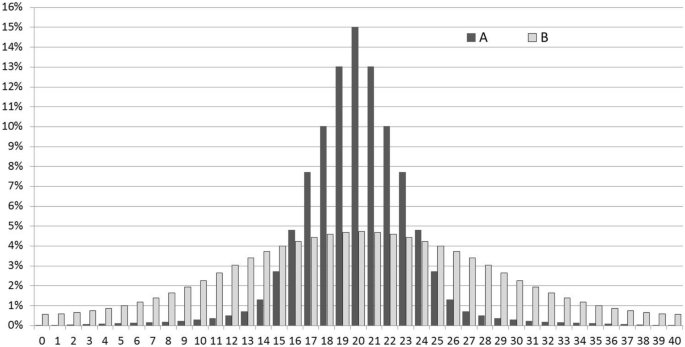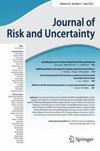委托承担风险、问责制和结果偏差
IF 2.3
2区 经济学
Q3 BUSINESS, FINANCE
引用次数: 0
摘要
摘要通过一系列实验,本研究探讨了人们如何评价代表自己做出风险决策的他人,以及这种评价如何影响委托承担风险。决策者代表客户行事,客户在观察风险决策的结果后,通过主观评估的方式让决策者承担责任。如果评估偏向于结果,它可能会对委托风险承担产生功能失调的影响,因为决策者的风险选择越来越与客户的风险偏好不一致。我们找到了支持这一猜想的证据。在三个实验中,我们测试了不同类型和程度的问责制的影响,因为我们操纵了客户可用的信息,以及评估对决策者的影响。在所有实验中,评估都偏向于结果。当评估影响决策者的补偿时,评估中更强的结果偏差转化为冒险决策不太经常与客户的风险偏好一致。在同样的情况下,让客户有机会进行同行比较会增加结果偏差。我们进一步发现,当客户无法观察到风险决策时,他们不会要求决策者对他们的风险选择负责,而是必须通过观察结果来推断风险决策。讨论了研究结果的理论和实际意义。本文章由计算机程序翻译,如有差异,请以英文原文为准。

Delegated risk-taking, accountability, and outcome bias
Abstract In a sequence of experiments, this study investigates how people evaluate others who make risky decisions on their behalf, and how such evaluations affect delegated risk-taking. A decision maker acts on behalf of a client who holds the decision maker accountable by way of a subjective evaluation after observing a risky decision’s outcome. If evaluation is biased towards the outcome, it may have dysfunctional effects with respect to delegated risk-taking in that decision makers’ risk choices are increasingly misaligned with their clients’ risk preferences. We find evidence giving support to this conjecture. Across and within three experiments, we test for the effects of different types and degrees of accountability in that we manipulate the information available to clients as well as the consequences which evaluations have for decision makers. Evaluations are biased towards outcomes in all experiments. When evaluations affect decision maker’s compensations, a stronger outcome bias in evaluations translates into risk-taking decisions being less frequently aligned with clients’ risk preferences. In the same situation, giving clients the opportunity to make peer comparisons increases outcome bias. We further find that clients do not hold decision makers accountable for their risk choices when they cannot observe the risk-taking decision, but have to infer it from observing the outcome. Theoretical and practical implications of the results are discussed.
求助全文
通过发布文献求助,成功后即可免费获取论文全文。
去求助
来源期刊

Journal of Risk and Uncertainty
Multiple-
CiteScore
6.30
自引率
10.60%
发文量
29
期刊介绍:
The Journal of Risk and Uncertainty (JRU) welcomes original empirical, experimental, and theoretical manuscripts dealing with the analysis of risk-bearing behavior and decision making under uncertainty. The topics covered in the journal include, but are not limited to, decision theory and the economics of uncertainty, experimental investigations of behavior under uncertainty, empirical studies of real world risk-taking behavior, behavioral models of choice under uncertainty, and risk and public policy. Review papers are welcome.
The JRU does not publish finance or behavioral finance research, game theory, note length work, or papers that treat Likert-type scales as having cardinal significance.
An important aim of the JRU is to encourage interdisciplinary communication and interaction between researchers in the area of risk and uncertainty. Authors are expected to provide introductory discussions which set forth the nature of their research and the interpretation and implications of their findings in a manner accessible to knowledgeable researchers in other disciplines.
Officially cited as: J Risk Uncertain
 求助内容:
求助内容: 应助结果提醒方式:
应助结果提醒方式:


